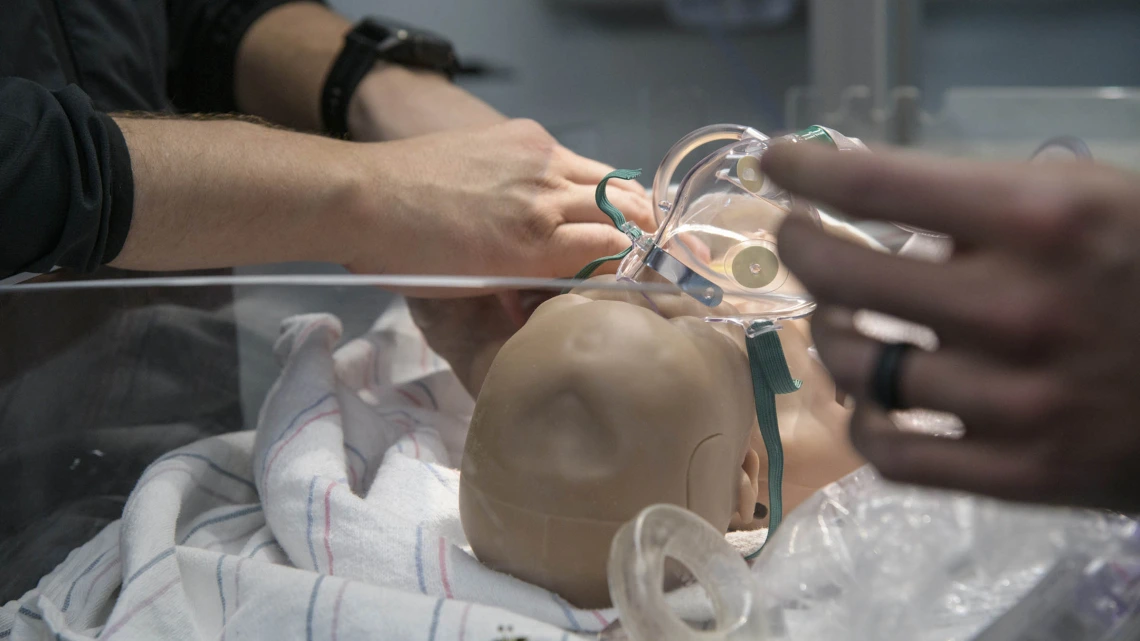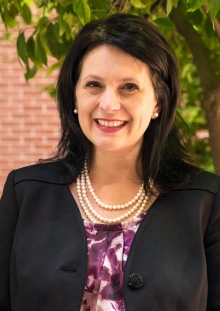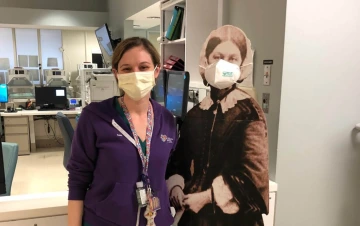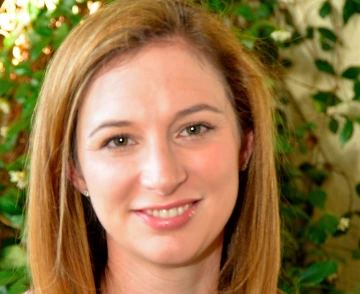Nursing Student Seeks Mentorship, Brings COVID-19 Experience
Samantha Alessi chose UArizona Health Sciences to work with Sheila Gephart, PhD, RN, and spent time in a New York hospital during the city’s COVID-19 peak.

Students practice neonatal intensive care in the Arizona Simulation Technology and Education Center (ASTEC) at the University of Arizona Health Sciences.
Samantha Alessi, MSN, chose to pursue a career in nursing after her sister was diagnosed with Type I diabetes in 2003. After witnessing the compassionate care her sibling received in the Pediatric Intensive Care Unit (PICU), she knew she had found her calling and decided to follow it at the University of Arizona Health Sciences.

Sheila Gephart, PhD, RN, is internationally recognized for her study of intestinal ailments among premature babies.
Dr. Gephart is nationally recognized for her research into technical and parent-engaged solutions to reduce the burden of necrotizing enterocolitis (NEC) – a devastating disease that can infect the intestines of premature infants. Because of their coinciding research interests, it was immediately clear to Alessi that Dr. Gephart would be her ideal advisor. Alessi has already been studying the unique health needs of patients in the Neonatal Intensive Care Unit (NICU).
In April, as part of a team of nursing students at New York University Langone Health, Alessi published a paper in Current Problems in Pediatric and Adolescent Health Care, a monthly peer-reviewed medical review journal covering pediatric and adolescent medicine. Alessi and her peers were driven to examine the problem of COVID-19 in relation to NICUs in the New York City area.
The introduction to their paper states, “One of the most vulnerable pediatric patient populations is cared for in the neonatal intensive care unit. There is limited data on the effect of COVID-19 in fetal life and among neonates after birth. Therefore there is an urgent need for proactive preparation, and planning to combat COVID-19, as well as to safeguard patients, their families, and healthcare personnel.”
The team’s aim was to consolidate recommendations from the Centers for Disease Control and Prevention (CDC) and local resources to provide guidance to clinicians in the NICU in key aspects of preparation needed to counter exposure or infection with COVID-19.
Alessi recently shared insight on her experience, including the challenges she has faced as a nurse researcher in her efforts to protect some of the most vulnerable patients from the dangers of COVID-19.
Can you share your perspective on the challenges nurses and nurse researchers face during this crisis?

Samantha Alessi, MSN, poses with a picture of Florence Nightingale, considered the founder of modern nursing, while working at New York University Langone Health earlier this year.
It has been hard going into work every day with so many unknowns. Not knowing when the crisis will end, will I bring it home to my family, how do I keep myself safe? The other piece that has been most challenging has been the influx of information and the rapid pace of changes in recommendations of care. New information was released daily. On the flip side, the fluidity of the care teams, embracing the change and coming to work giving their all, demonstrated how resilient nurses can be.
What was the inspiration for your study on neonatal intensive care preparedness?
I fell in love with the NICU after floating there when I was a mother/baby nurse. I love watching the babies grow and how resilient they are. Babies can do amazing things!
What particular vulnerabilities do neonatal nurses and patients face?
There are so many. I think neonates are vulnerable recently due to the unknown effects of COVID-19 on their population. Although vertical transmission has only been described in case reports to date, we do not know the ramifications of being in utero when a mother has been critically ill.
Can you describe the need for the guidelines you have developed?

Samantha Alessi, MSN, will begin pursuing her PhD in the College of Nursing in August, 2020.
How do you hope to see these guidelines implemented in neonatal intensive care units?
I hope that this is a baseline for other organizations to see what we were able to recommend for practice with the current information that we had and ways that we were able to convey it to staff as it changed. Information regarding COVID-19 care in mothers and infants will continue to evolve as we continue to learn more but this document may serve as a place to start.

